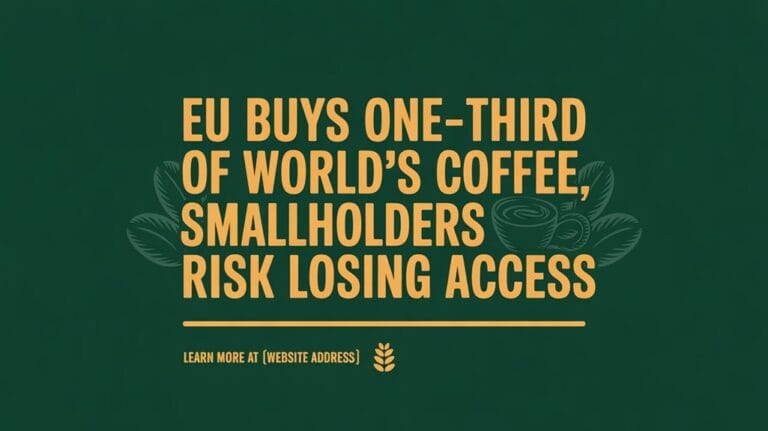As the European Union’s deforestation regulation (EUDR) deadlines approach, coffee producers and exporters worldwide are racing to meet strict traceability requirements that could reshape global supply chains. The EUDR, effective for large companies in December 2025 and mid-2026 for smaller ones, bans products linked to deforestation after 2020. Producers must prove compliance through detailed farm-level data, a challenge for decentralized smallholder systems dominating coffee farming. Supply chain specialists like Primavera Coffee have already completed Guatemalan supply chain mapping, finding no deforestation in certified zones while working to extend similar documentation to Colombia and Ethiopia. Furthermore, the coffee culture’s global social hubs have evolved, emphasizing the necessity of ethical sourcing to meet these upcoming standards.
Regulatory challenges like cost, technology gaps, and tight timelines are straining supply chains, with critics warning the rules might push out farmers unable to afford compliance. Many coffee-growing regions rely on smallholders operating with minimal margins and resources. Meeting EUDR’s traceability demands—tracking each coffee lot’s origin, geolocation, and deforestation risk—requires tools and training these farmers often lack. In Honduras, successful pilot programs using community-led mapping tools have demonstrated affordable compliance paths for smallholders.
EUDR’s cost, tech, and timeline hurdles strain supply chains, risking exclusion of under-resourced smallholders.
Exporters and importers now face pressure to rally producers, processors, and tech providers into collaborative systems. Digital platforms and satellite mapping are rising as solutions, but adoption remains patchy. Without support, small farmers risk losing EU market access, which buys over a one-third of the world’s coffee.
Deadlines trigger urgency despite delays. Originally set for 2024, enforcement was pushed to 2025-2026 to ease changes, but supply chains still lag. The European Commission rejects calls for further extensions, urging companies to “act now.” Some firms argue the rules’ complexity—like verifying environmental and social laws in source countries—needs clearer guidance. Others worry rushed compliance could sideline vulnerable growers.
The ripple effects span continents. Latin American and African smallholders, often farming plots under five hectares, face steep costs to document land use or adopt traceability tech. Cooperatives and governments scramble to organize training and funding, but progress is uneven. Meanwhile, larger estates and corporate suppliers with existing sustainability certifications gain a competitive edge.
For consumers, EUDR promises ethically sourced coffee. But producers warn the regulation’s costs might inflate prices or shrink supply if smaller players exit. Stakeholders stress that balancing environmental goals with equity will shape the industry’s future—one where transparency isn’t just a buzzword but a survival tool. As deadlines near, the clock ticks louder for millions who depend on coffee for their livelihoods.





